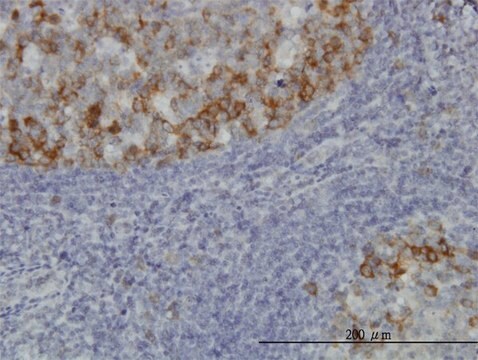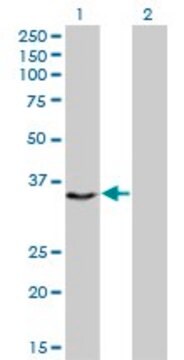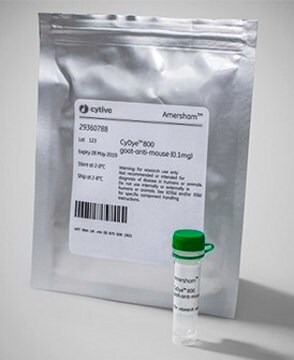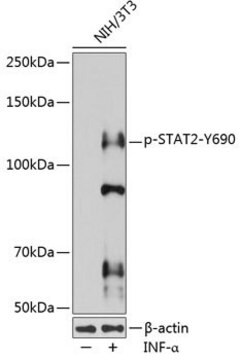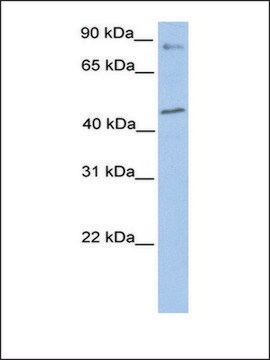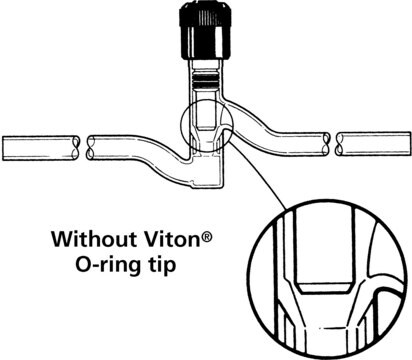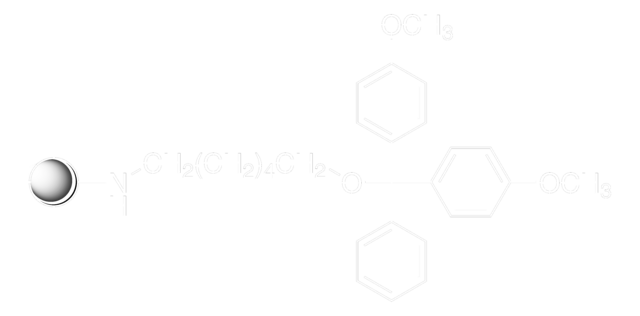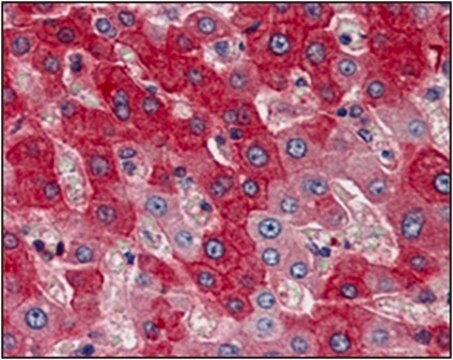MAB3612
Anti-BubR1 Antibody, clone 8G1
clone 8G1, Chemicon®, from mouse
About This Item
Productos recomendados
origen biológico
mouse
Nivel de calidad
forma del anticuerpo
purified immunoglobulin
tipo de anticuerpo
primary antibodies
clon
8G1, monoclonal
reactividad de especies
human
fabricante / nombre comercial
Chemicon®
técnicas
immunocytochemistry: suitable
western blot: suitable
isotipo
IgG1
Nº de acceso NCBI
Nº de acceso UniProt
Condiciones de envío
wet ice
modificación del objetivo postraduccional
unmodified
Información sobre el gen
human ... BUB1B(701)
Descripción general
Especificidad
Inmunógeno
Aplicación
Immunocytochemistry: 1 μg/mL on tissue culture cells. Suggested fix is 3.5% PBS-buffered paraformaldehyde for 7 minutes. Permeabilization method is 0.2% Triton-X-100 after fixation. Suggested blocking buffer is 10 mM Tris, pH 7.5 with 150 mM NaCl with 0.1% BSA.
Optimal working dilutions must be determined by the end user.
Forma física
Otras notas
Información legal
¿No encuentra el producto adecuado?
Pruebe nuestro Herramienta de selección de productos.
Código de clase de almacenamiento
10 - Combustible liquids
Clase de riesgo para el agua (WGK)
WGK 2
Punto de inflamabilidad (°F)
Not applicable
Punto de inflamabilidad (°C)
Not applicable
Certificados de análisis (COA)
Busque Certificados de análisis (COA) introduciendo el número de lote del producto. Los números de lote se encuentran en la etiqueta del producto después de las palabras «Lot» o «Batch»
¿Ya tiene este producto?
Encuentre la documentación para los productos que ha comprado recientemente en la Biblioteca de documentos.
Nuestro equipo de científicos tiene experiencia en todas las áreas de investigación: Ciencias de la vida, Ciencia de los materiales, Síntesis química, Cromatografía, Analítica y muchas otras.
Póngase en contacto con el Servicio técnico